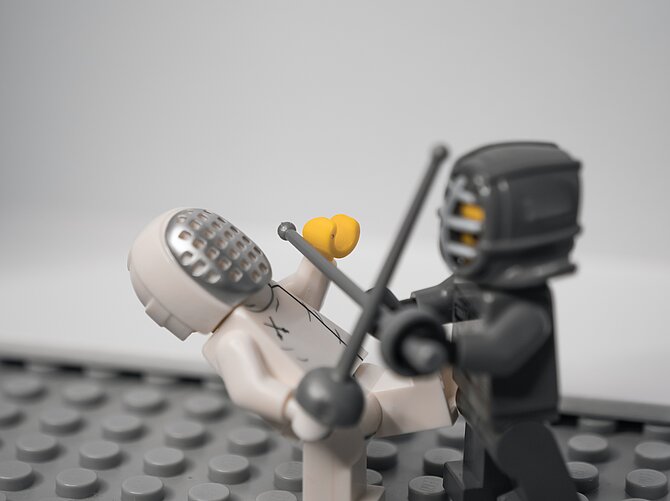Find out today what the legal world will be talking about tomorrow.
05.05.2023
On the protection of NFT trademarks - another landmark ruling from USA

In a lawsuit in the USA, the well-known NFT manufacturer Yuga Labs achieved an important interim success against the artist Ryder Ripps on April 21, 2023. Yuga Labs is best known for creating the NFT collection "Bored Ape Yacht Club", which is now world famous. The NFTs are assigned to various - partly AI-generated - images of apes and are sold through various channels, such as the NFT platform OpenSea. The NFTs are in demand and were repeatedly sold for enormous prices. For example, a bundle of the famous apes (more specifically the NFTs linked to the images) was auctioned off at Sotheby's for a total of around USD 24 million.
After the Hermès ./. Mason Rothschild case over the distribution of the "Metabirkin" NFT collection was already closely followed in early February, the now published decision is another landmark ruling on NFT trademarks.
What happened in this particular case?
Since April 2021, Yuga Labs has been using various marks (e.g., BAYC, BORED APE, and BORED APE YACHT CLUB) in connection with the NFT collection it created, and therefore Yuga Labs is the owner of various unregistered marks (peculiar to Anglo-American law).
Ripps criticized Yuga Labs since late 2021 and made allegations that Yuga Labs’ corporate logo and various depictions of the Bored Apes allegedly contained racist references and Nazi symbolism.
In May 2022, Ripps created his own NFT collection called the "Ryder Ripps Bored Ape Yacht Club" (RR/BAYC) and also distributed the NFTs through OpenSea, among other outlets. The NFTs referenced the same digital images of the Bored Apes as the "original" NFTs from Yuga Labs.
Based on the distribution of the RR/BAYC NFTs, Yuga Labs accused Ripps of, among other things, trademark infringement, unfair competition, and unjust enrichment.
Ripps contended that the creation and distribution of the NFTs was a form of "appropriation art" and thus covered by his artistic freedom and alleged that he primarily wanted to bring attention to Yuga Labs’ conduct by creating a satirical conceptual art and performance project.
Court rules in favor of Yuga Labs
The Court rejected Ripps' argumentation and largely granted Yuga Labs' motion. Therefore, Yuga Labs is entitled to injunctive relief and monetary damages. The amount of damages owed by Ripps will now be decided in further proceedings.
The Court found that Yuga Labs owns various unregistered trademarks and that NFTs are goods for purposes of U.S. trademark law. The Court concluded that Ripps created the RR/BAYC NFTs primarily in pursuit of commercial gain and not as a form of artistic expression and pointed out that the sale of the RR/BAYC NFTs was “no more artistic than the sale of a counterfeit handbag”.
By selling the RR/BAYC NFTs without Yuga Labs' consent, Ripps created a likelihood of confusion with Yuga Labs' marks. Due to the fact that Ripps assigned the RR/BAYC NFTs to the identical images that Yuga Labs used for its Bored Ape NFT collection, the Court found that Ripps’ activities were designed to sell infringing products and not expressive artistic speech.
What does the case mean for Germany?
Even though the case is not directly transferable to European and German law, it impressively shows the relevance of trademark protection for NFTs. Especially when - as in the case of the Bored Apes - there is no copyright on the digital reference objects of NFTs due to the use of AI in the absence of personal intellectual creation, effective protection by trademarks gains in importance. This is because protection can also be acquired under German and European law through the corresponding registration of trademarks, which takes effect, among other things, when other special protection rights for the digital reference objects are ruled out. At the same time, the case shows that the counterfeiting potential for NFTs is high, even though NFTs as such are supposed to be precisely counterfeit-proof. After all, an NFT can be created by anyone in relation to a digital object, regardless of whether or what rights the creator has in the reference object.
Since numerous trademarks have now also been filed with the EUIPO in connection with NFTs and, at the same time, imitators will test the limits of what is legally permissible, it is probably only a matter of time before NFT trademarks occupy the courts in Europe as well.
Authors




